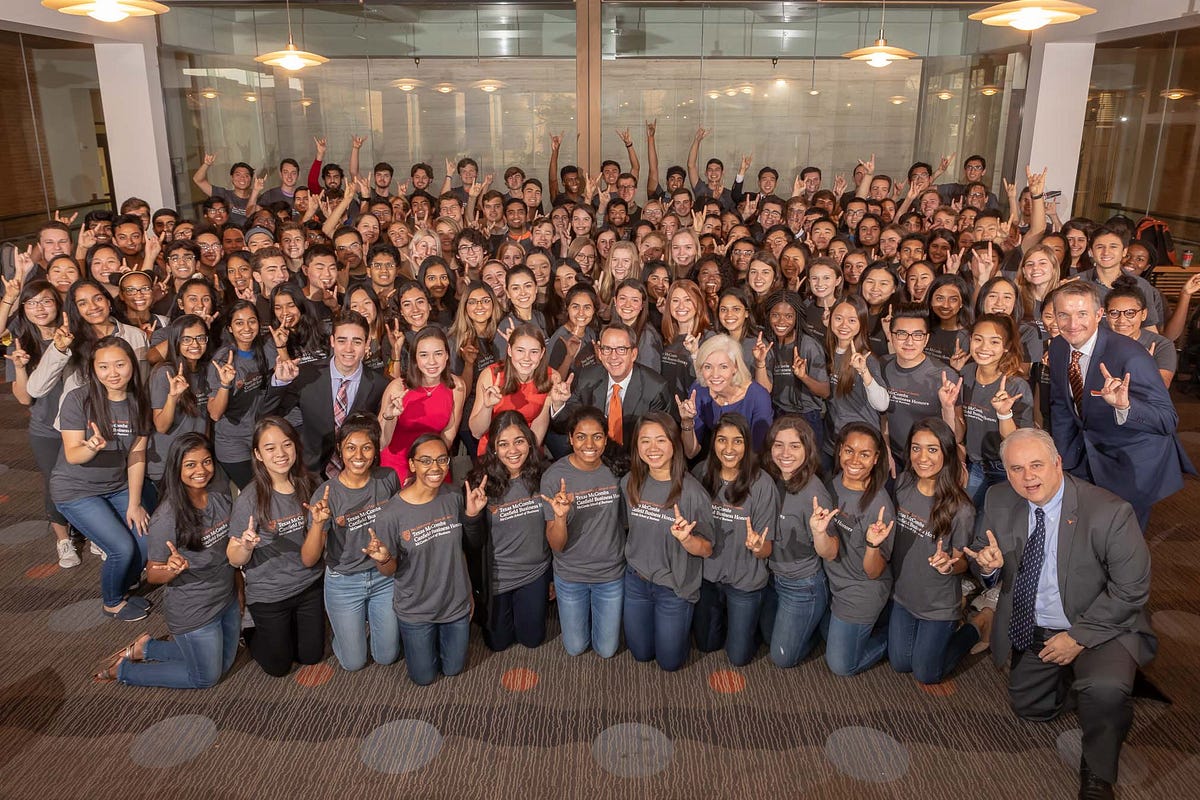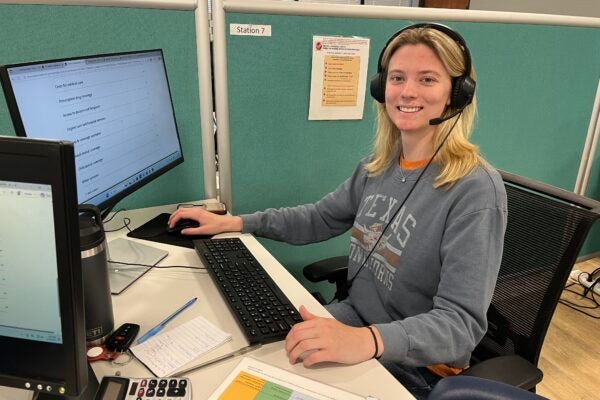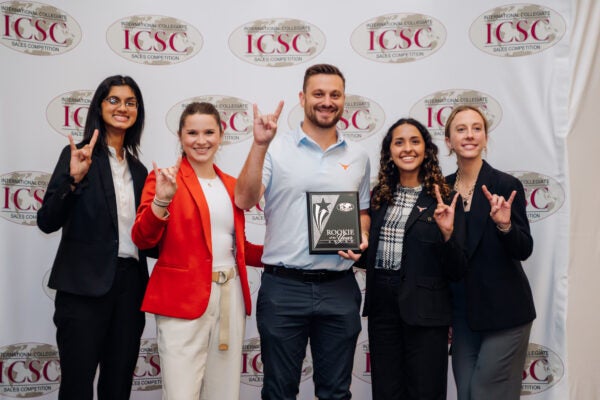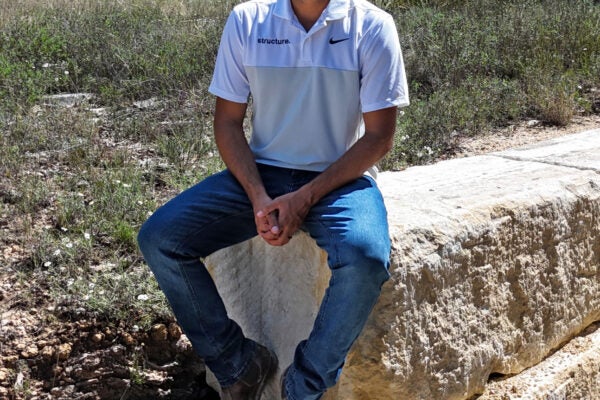Business Honors Background
The recently re-christened Canfield Business Honors Program took decades of development to reach where it is today
By London Gibson

The newly rechristened Canfield Business Honors Program attracts the most ambitious of McCombs undergraduates. The selective program provides a wealth of academic and programmatic opportunities for its students — but it took decades of development to get to where it is today.
BHP now boasts 500 students, a faculty director, seven full-time staff, and 10 student peer advisors, but it began with just 37 students when it was launched in 1960. At the beginning, BHP represented a way for the business school to keep some of the best and brightest undergraduates in the state with the promise of a rigorous learning experience to rival the Ivy League.
But BHP also carved out a place for more than just challenging coursework. The curriculum was designed to produce business graduates with a sense of community and ethical leadership, and this dedication persists in the program still.
Shelley Nix, BHP staff director, says in more recent years, the program has expanded its goals to include broader recruitment strategies, cohort programming that develops collaborative leaders, and experiential learning opportunities for students.
“The aim has been to create a more diverse learning environment,” Nix says.
The program also has a sterling track record in launching students into their careers. Over the last eight years, job placement is 100 percent for students seeking industry positions. Other BHP graduates go to top law schools, medical schools, or other non-business graduate programs immediately after graduation. According to self-reported alumni data, 30 percent of BHP alumni were admitted to a top 20 MBA program within five years after graduation.
Cultivating the Culture
Former program director Robert Prentice, who led BHP from 2010 to 2018 and is now chair of the Business, Government and Society Department at McCombs, says he worked to incorporate moral principles into the program.
“One of the best ways to succeed in the business world is to be the kind of person who is always there for everybody else,” Prentice says. “I wanted students to compete with each other — and not against each other. I wanted everybody to have everybody’s back. And I focused on creating an ethical culture — being as honest as possible — one where employers would say, ‘We want to hire BHP kids because we know they’ll do things the right way.’”
Collaboration is another of the distinctive characteristics of BHP, says another former director, Eli Cox, who led the program from 1995 to 2010. Group projects are an important part of the program, requiring students to be constantly working together. “Again, people in business don’t work in isolation. They work in teams,” Cox says.
Holistic and Diverse Admissions
Today’s BHP student has an average SAT score of 1479 and an average GPA of 3.79, but admissions go beyond academic performance.
Phil Canfield, BBA ’89, says he admires the program’s holistic approach to admissions. “They’re looking for kids who’ve had really high-quality leadership experiences. It’s not just how smart they are but also how good they are as leaders.”
The program’s new faculty director, Finance Professor Andres Almazan, says his plan is not to make great changes but to reinforce the program’s strengths. That effort includes introducing new four-year dual honors degree programs, such as the recently established Texas Honors Computer Science and Business program. It complements the current dual degree program Business Honors/Plan II, and opens the door to future dual honors offerings in fields such as engineering.
His ambitions also includes maintaining the competitive yet supportive environment that gives the program its special character.
“I honestly believe that a unique combination of factors has led to a quite remarkable social enterprise,” Almazan says. “Superb students interacting with dedicated staff and faculty have produced a top-notch academic environment that enjoys the strongest support from our passionate alumni and the highest recruiting interest of the best companies in the world. Our future builds on these great accomplishments, and I firmly believe that the sky is the limit.”
This article appeared in the spring 2019 issue of McCombs magazine. Click on the link to see the full issue.
About this Post
Share:


